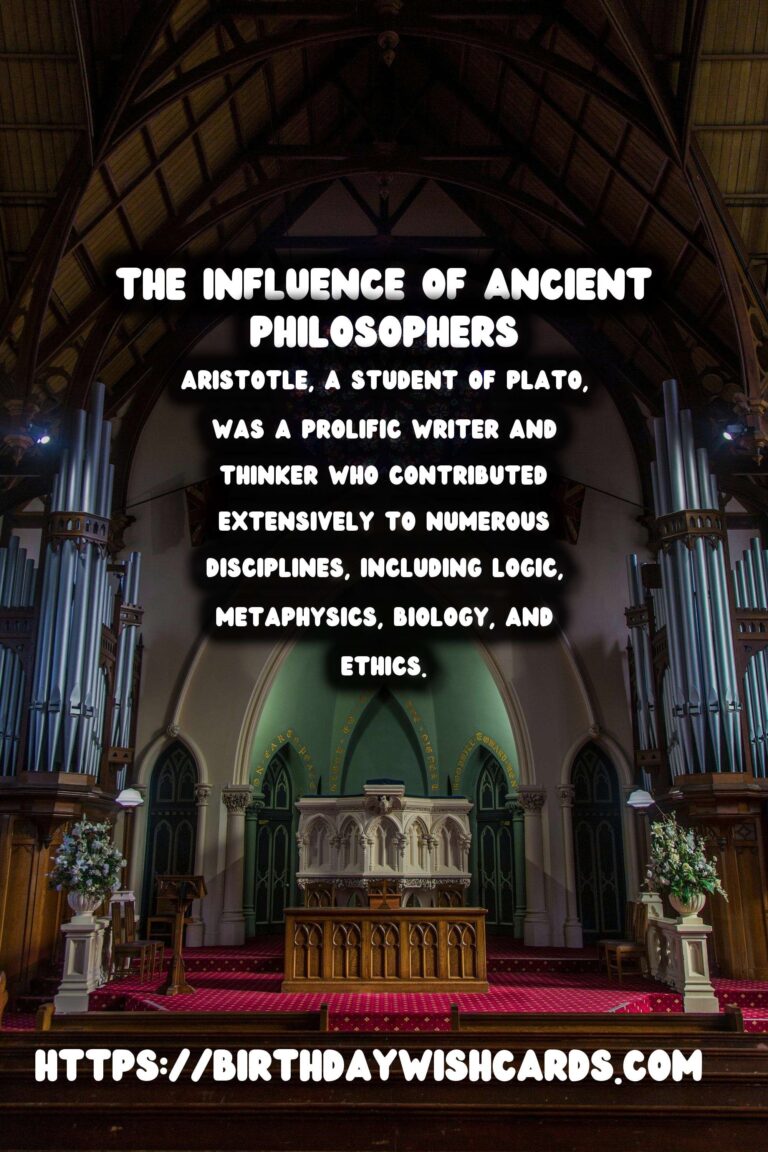
From the majestic steps of the Acropolis to the bustling Agora of ancient Athens, the echoes of ancient philosophers reverberate across history. Their profound insights laid the groundwork for modern philosophical discourse, impacting diverse fields such as politics, ethics, and the arts.
The Epoch of Ancient Philosophy
Ancient philosophy, originating around the 6th century BCE, emerged in a context rich with intellectual exploration. It is marked by seminal figures like Socrates, Plato, and Aristotle. Their theories addressed fundamental questions about existence, reality, and human nature.
Socrates: The Father of Western Philosophy
Socrates stands as a monumental figure, renowned not for his writings but for his dialectical method of inquiry. His dialogues, captured through the works of Plato, introduced the Socratic method—a form of cooperative argumentative dialogue—that remains integral in educational and philosophical practices today.
Plato: Innovator of Ideals
Plato, a student of Socrates, founded the Academy in Athens. His contributions go beyond philosophy, influencing political theory and education. His theory of Forms postulated abstract realities distinct from the material world, paving the way for discussions that endure in metaphysics and epistemology.
Aristotle: The Polymath
Aristotle, a student of Plato, was a prolific writer and thinker who contributed extensively to numerous disciplines, including logic, metaphysics, biology, and ethics. His concept of empiricism, advocating for observation and experience as the science’s foundation, shapes scientific inquiry even in the contemporary era.
The Stoics and Epicureans
Stoicism and Epicureanism, founded by Zeno of Citium and Epicurus, respectively, offered contrasting paths to achieving eudaimonia, or human flourishing. Stoicism emphasized virtues and the rational order of the cosmos, fostering resilience through inner peace. In contrast, Epicureanism advocated seeking pleasure through modest comforts and the absence of pain.
The Enduring Legacy
The philosophies of these ancient thinkers have transcended time. Plato’s political propositions in ‘Republic’ echo in contemporary governance structures, advocating for a philosopher-king model of leadership. Aristotle’s expositions on ethics and virtue resonate in philosophical discourses about morality and good life.
Modern interpretations and adaptations of epicurean and stoic principles can be observed in current philosophical and self-help literature. Their teachings continue to be pivotal in debates on ethics, virtually urging humanity to examine life critically.
Conclusion
Tracing the footsteps of ancient philosophers unveils a mosaic of ideas that have profoundly influenced the tapestry of modern thought. Their teachings have not only shaped historical narratives but also underline the enduring quest for truth and understanding—a quest that remains relevant even today.
From the majestic steps of the Acropolis to the bustling Agora of ancient Athens, the echoes of ancient philosophers reverberate across history. Aristotle, a student of Plato, was a prolific writer and thinker who contributed extensively to numerous disciplines, including logic, metaphysics, biology, and ethics. 
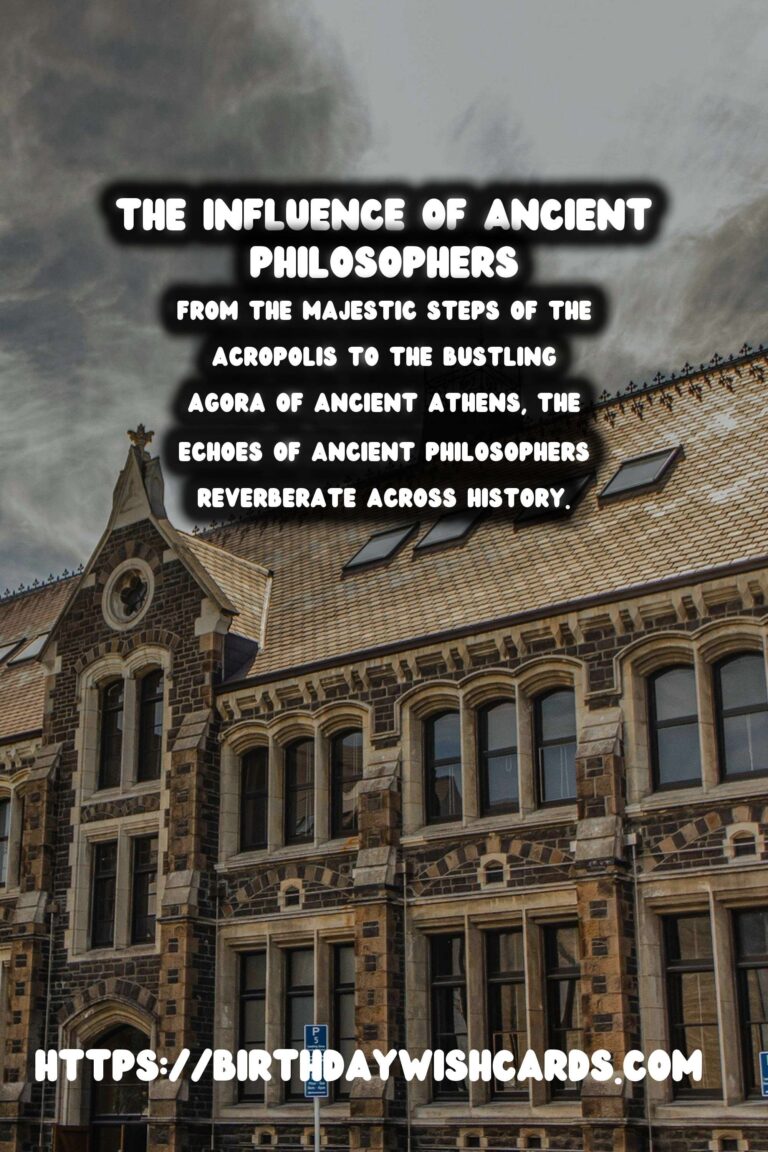
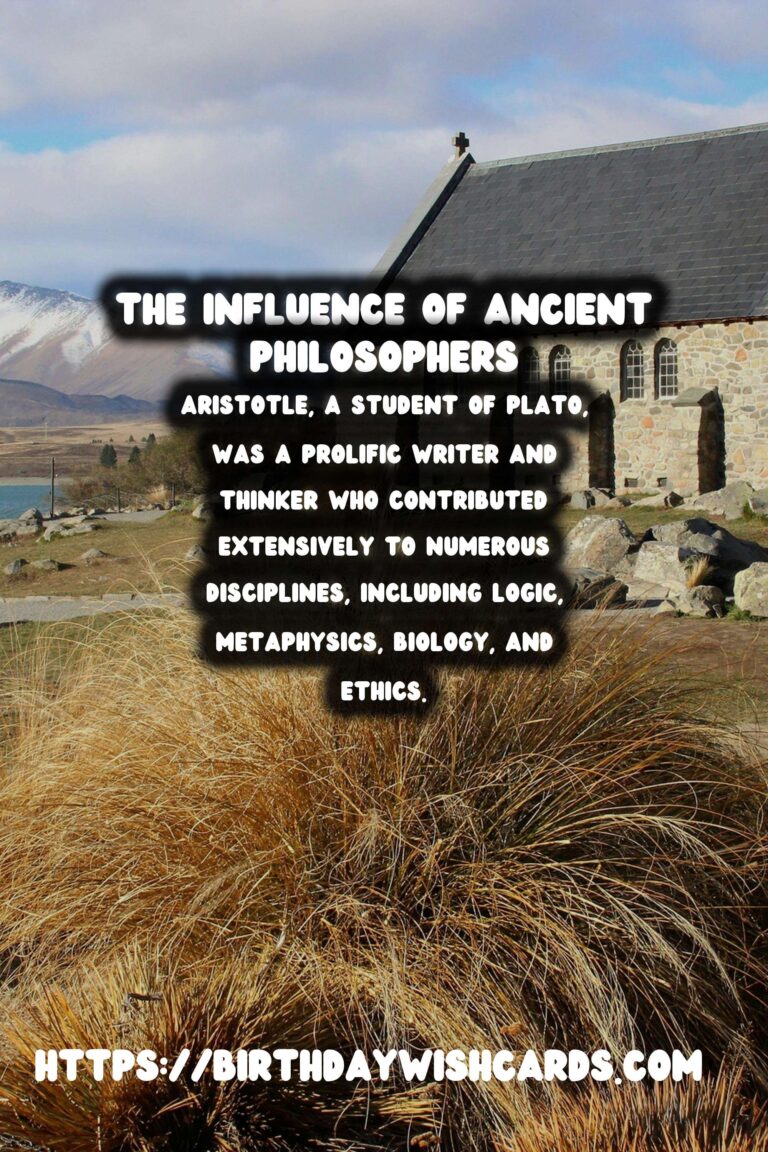
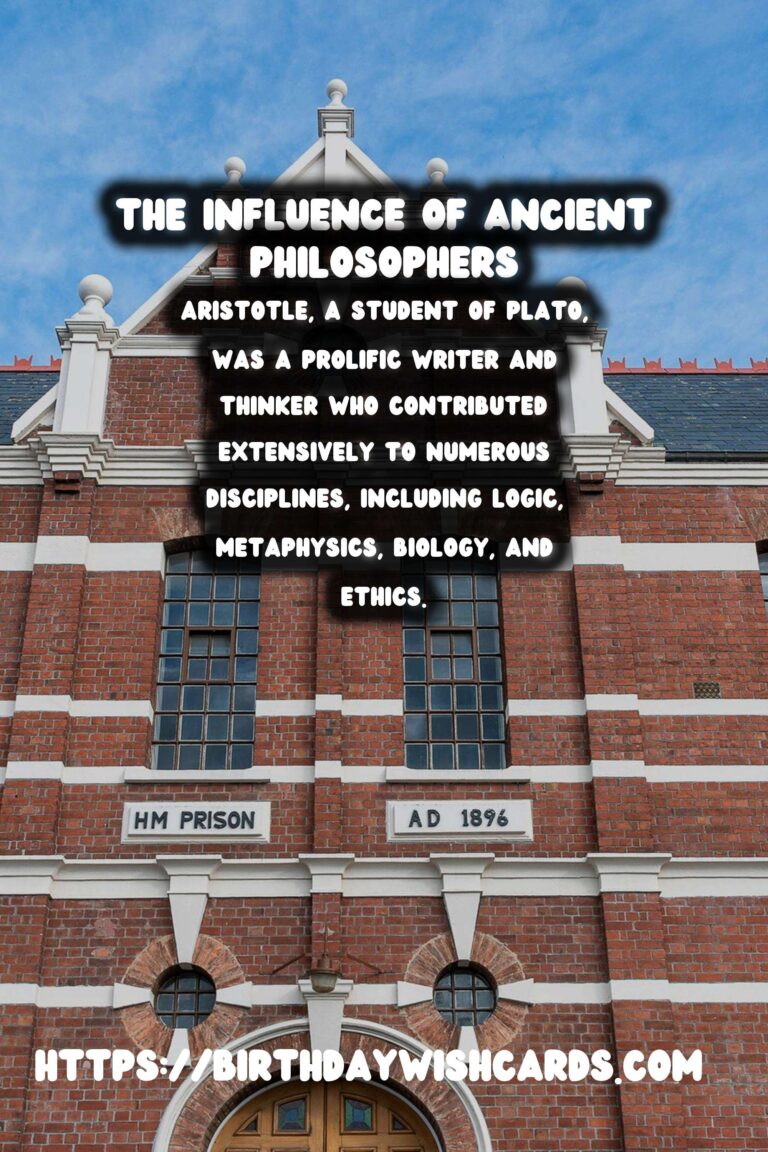
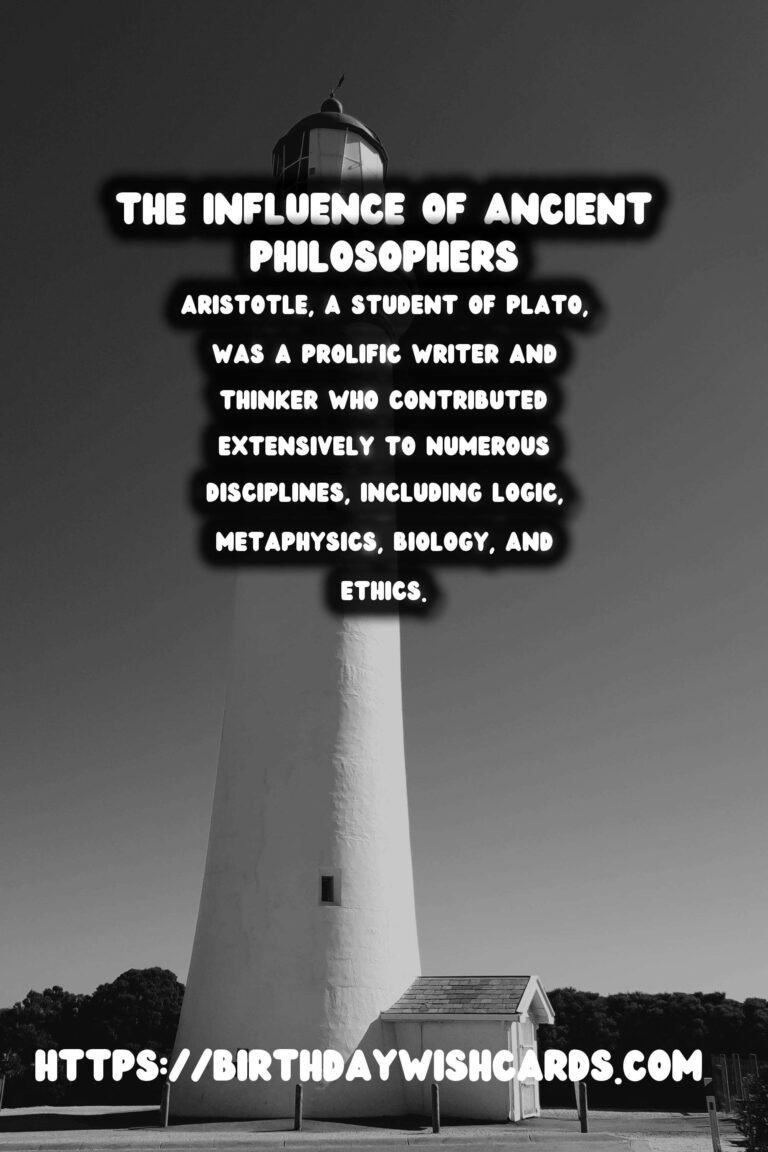
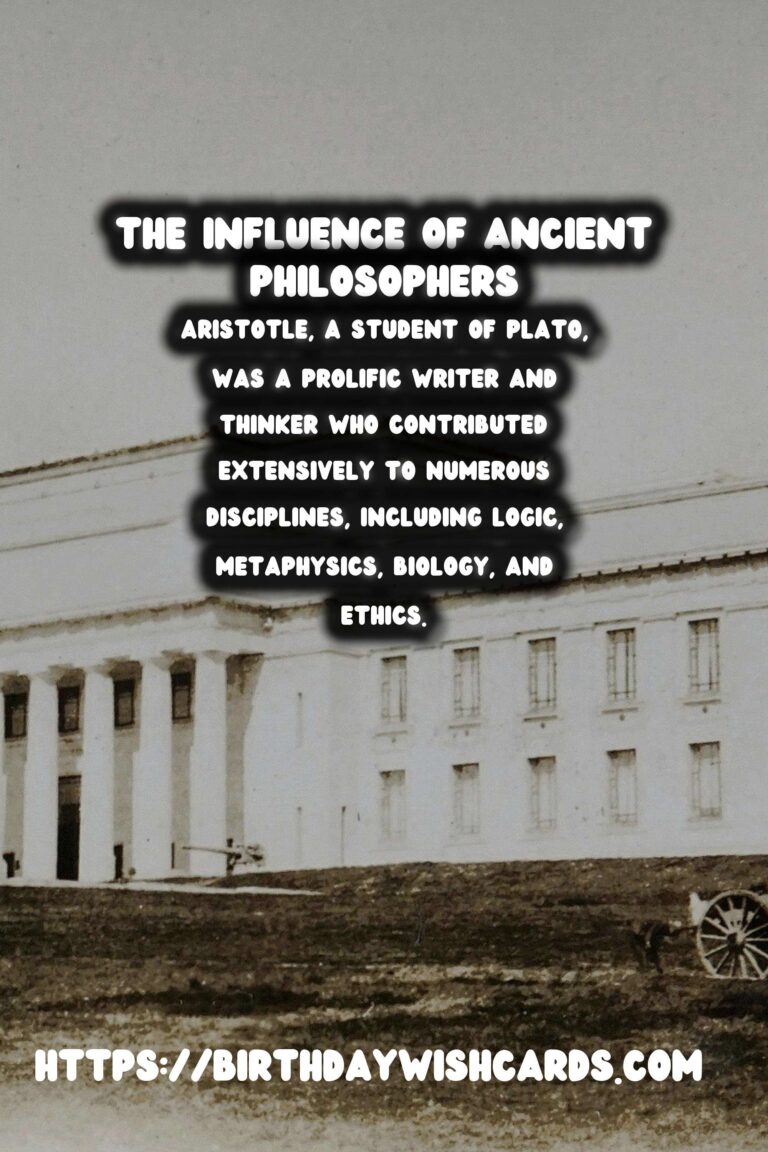

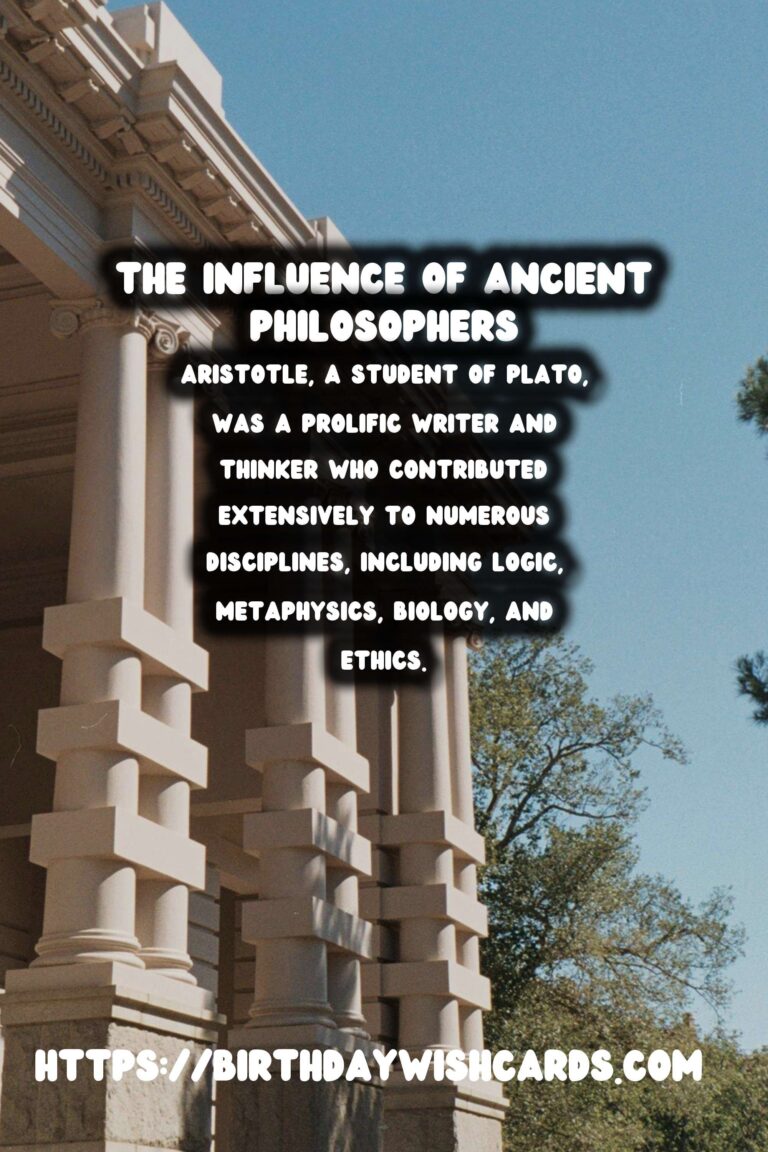
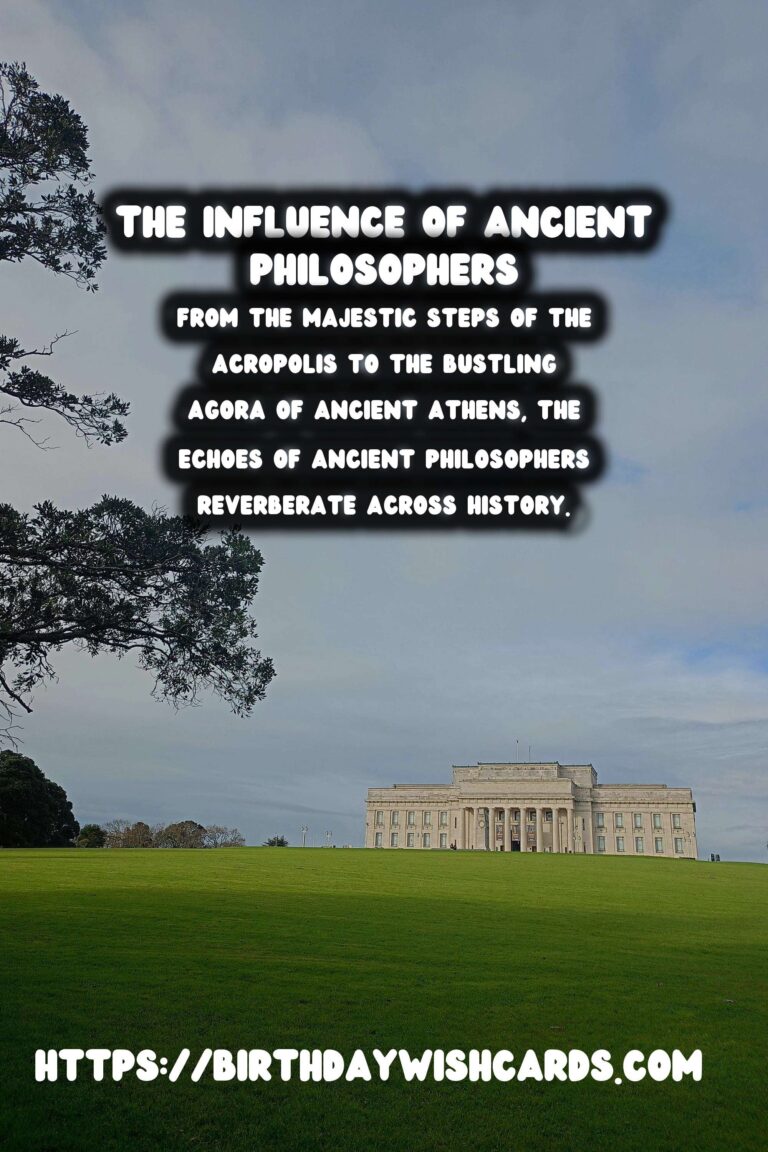

#ancientphilosophy #westernthought




